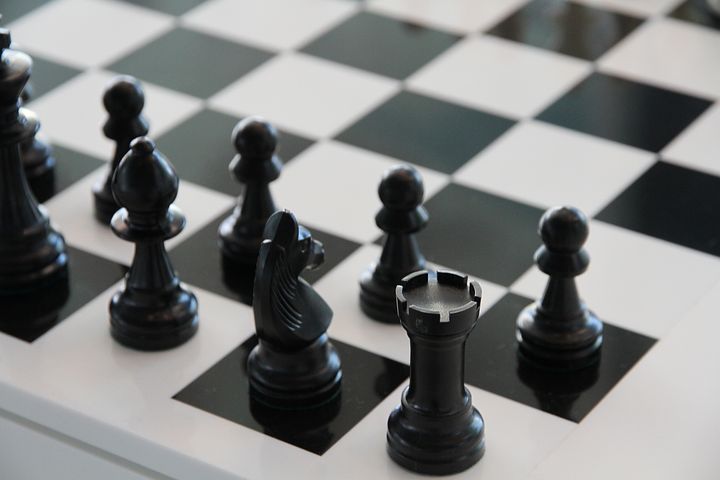Why playing chess is bad for business
 In preparing business people for strategy the game of chess is seen as a perfect tool. I can see why that is. I also think it is unjustified.
In preparing business people for strategy the game of chess is seen as a perfect tool. I can see why that is. I also think it is unjustified.
In chess you need to consider every move you make in reference to your overall plan, as in real life business. You also need to look at what your opponent is doing, consider how this affects your plan and what this means for your next move; do you go ahead as planned or… not? You need to think through the many moves ahead of you. Every move you make is not a single move but part of a bigger whole, i.e. your plan. That plan looks at where to make a move, when to do it and what piece to move. And as already pointed out, that’s just you. There is also your opponent and you need to try to build a picture in your mind about what he is up to. The key is anticipation just like you have to do in business strategy. Chess is great training tool for that.
But there is one thing that chess does that isn’t real for business strategy.
The outcome of every single move you make is 100% predictable. The only uncertainty is what move your opponent will make next. What I mean is that at the moment you pick up a piece and move it the situation after you have made your move is exactly known. That’s what the rules do. In real live this is not the case. When you there pick up a “piece” the outcome of your move is often still uncertain.
This may seem like a small thing, but its big deal.
As a lifelong wargamer I experience how this difference affects the way you think. It affects the anticipations and expectations you have when planning and initiation a move. In most wargames the roll of the dice is a factor that contributes to the result of the move. So the outcome is still uncertain at the moment that you pick up a piece and move it. As a wargamer you plan your moves with a lot more attention to all the factors that help you improve the odds. Uncertainty takes a larger part of your thinking than in chess. The same should be true for business strategy. The question is whether this is the case?
In my dealings with many business people I think the answer is: not enough. To many people strategies breathe an air of certainty, predictability and/or makeability of the future that simply isn’t real. I also think that this is an important contributor to the widely shared feeling that most strategies are just paper tigers ending up in deep drawers where they collect layer upon layer of dust. Shortly after starting the implementation it is often and over and over again felt that, indeed, no strategic plan survives the first contact with reality. That is a pity because although a strategy looks like a plan, it is not a plan. I mean a plan-plan. Yes a strategy has a plan-part, but all that a strategy does is affecting your chances on success; it modifies the odds. A good strategy improves them, a bad or non-existing strategy… well… you may always be lucky, but I am not sure that this is what your shareholders are looking for.
So what’s the catch at the end of this story?
Pickup playing wargames is one of them. We can do that for and with you. If that’s not for you than you can also pickup games (other than gambling!!) that explicitly involve the rolling of dice in establishing outcomes. Use these to train yourself in dealing with the odds you face using nothing but your own brain, so no calculators! Remember that one of the greatest strategists of all time, Napoleon, excelled in… arithmetic, and he didn’t have any calculator.
Jan-Willem Boots is co-founder of Changing Games



